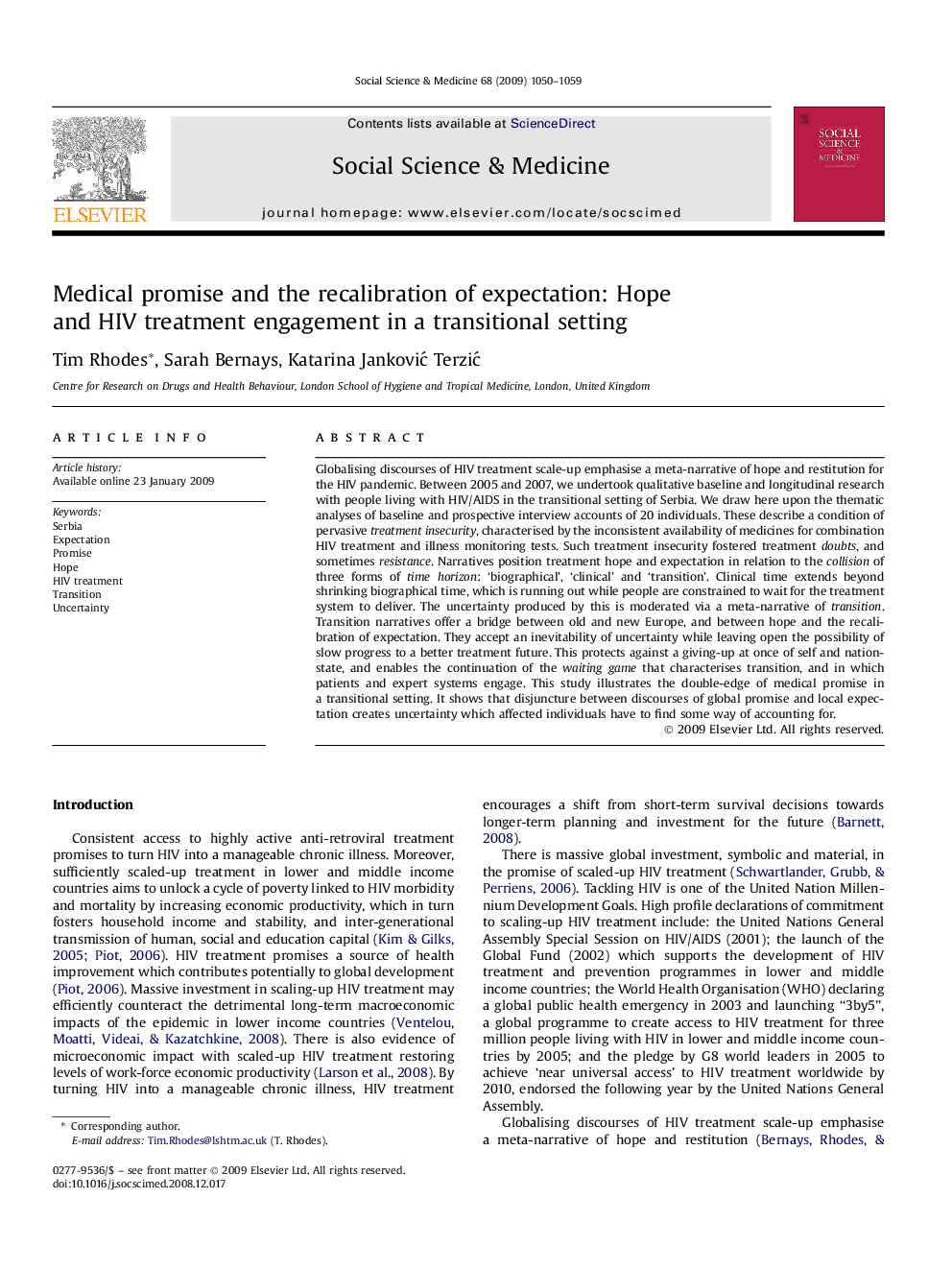| Article ID | Journal | Published Year | Pages | File Type |
|---|---|---|---|---|
| 10472272 | Social Science & Medicine | 2009 | 10 Pages |
Abstract
Globalising discourses of HIV treatment scale-up emphasise a meta-narrative of hope and restitution for the HIV pandemic. Between 2005 and 2007, we undertook qualitative baseline and longitudinal research with people living with HIV/AIDS in the transitional setting of Serbia. We draw here upon the thematic analyses of baseline and prospective interview accounts of 20 individuals. These describe a condition of pervasive treatment insecurity, characterised by the inconsistent availability of medicines for combination HIV treatment and illness monitoring tests. Such treatment insecurity fostered treatment doubts, and sometimes resistance. Narratives position treatment hope and expectation in relation to the collision of three forms of time horizon: 'biographical', 'clinical' and 'transition'. Clinical time extends beyond shrinking biographical time, which is running out while people are constrained to wait for the treatment system to deliver. The uncertainty produced by this is moderated via a meta-narrative of transition. Transition narratives offer a bridge between old and new Europe, and between hope and the recalibration of expectation. They accept an inevitability of uncertainty while leaving open the possibility of slow progress to a better treatment future. This protects against a giving-up at once of self and nation-state, and enables the continuation of the waiting game that characterises transition, and in which patients and expert systems engage. This study illustrates the double-edge of medical promise in a transitional setting. It shows that disjuncture between discourses of global promise and local expectation creates uncertainty which affected individuals have to find some way of accounting for.
Related Topics
Health Sciences
Medicine and Dentistry
Public Health and Health Policy
Authors
Tim Rhodes, Sarah Bernays, Katarina JankoviÄ TerziÄ,
